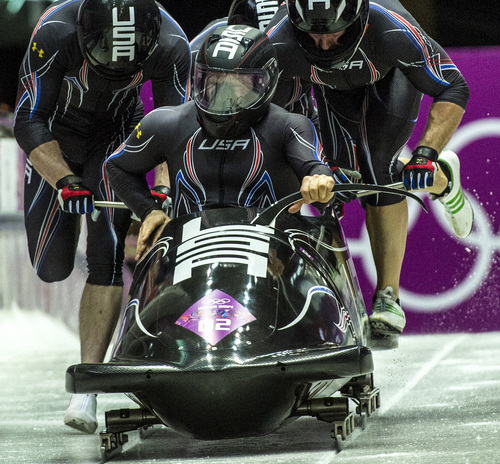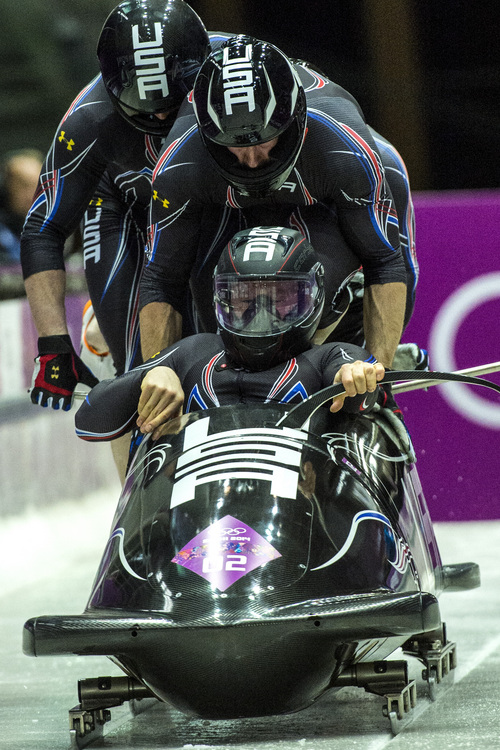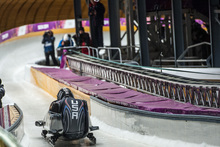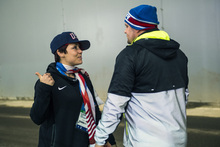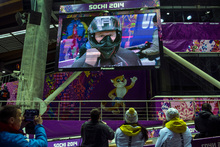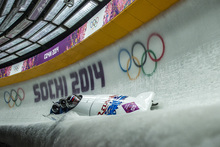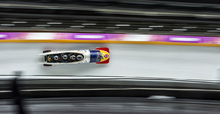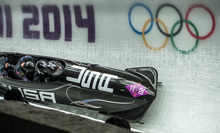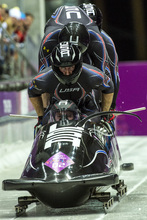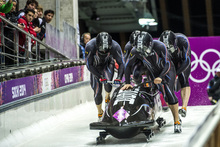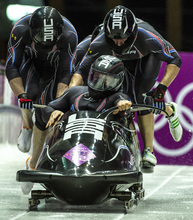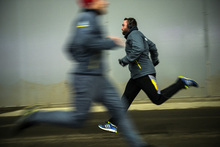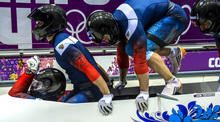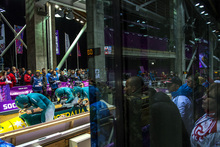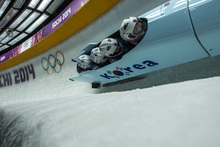This is an archived article that was published on sltrib.com in 2014, and information in the article may be outdated. It is provided only for personal research purposes and may not be reprinted.
Krasnaya Polyana, Russia • Steven Holcomb was heading straight for the video replay after the first two runs of the four-man bobsled competition at the Sochi Olympics on Saturday, to see if he can discover from Latvia the secret to winning another gold medal.
The defending Olympic champion from Park City was sitting in fourth place after the first two runs of the event, having watched Latvia's Oscars Melbardis surprisingly leapfrog his "Night Train 2" crew in the second of four runs at the Sanki Sliding Center.
"Trust me, we're going to go back and watch their video and see what they were doing, where they picked up the time," Holcomb said, "because from what I hear it wasn't the greatest of runs. But like I've said the last two weeks, you can have a terrible run and be super fast or have a great clean run and be super slow. It's really hard to tell what actually works here."
Unless you're Alexander Zubkov, anyway.
The Russian pilot won the two-man race going away last week, and now leads the four-man race by 0.04 seconds over Melbardis, whose crew made an astonishing move up from fifth place after the first run. The Latvians made up a whopping 0.24 seconds on Zubkov with their second run, while Holcomb fell further behind by making some mistakes on his way down the tricky course.
"Pretty impressive on this track to move up that much," said Alpine's Chris Fogt, one of Holcomb's crew members.
The Americans are 0.17 seconds behind Zubkov — that's a fairly big margin that could prove too large to overcome — and 0.01 seconds behind Germany's Maximilian Arndt for third place and another medal. Holcomb took bronze in the two-man race earlier.
"Everybody's kind of looking at us like they kicked our dog or something," Holcomb said, "but we're 17 hundredths out. We're just focused and serious. We're halfway through and we have a chance to win another medal. And that's what we're going to do.
"We're not upset," he added. "We're a hundredth out of third place. The Germans know how we perform under pressure and I'm sure they're going to have a hard time sleeping tonight. Melbardis hasn't been putting down consistent runs. So we're in a good position, and I'm confident we'll come out tomorrow and do well."
To do that, the Americans said they must improve their start.
Fogt helped teammates Steve Langton and Curtis Tomasevicz push Holcomb to a track-record start time of 4.75 seconds on their first run, but they couldn't quite match it on the second with a 4.79, tied for fourth-best.
"We need to drop it back down and have that No. 1 ranking in the first 50 meters to have a shot," Tomasevicz said. "Latvia dropped their start time, we didn't. And that showed up at the bottom."
Holcomb said his balky left calf, injured during the two-man competition, was roughly 95 percent healthy after several days of easy training and medical treatment. But he was just a split-second too late in joining his teammates on the push of the second run, and finished with only the ninth-best time.
And these are not bottom of the barrel drivers he's trying to overtake.
Arndt won the four-man World Cup title this season, while Melbardis won two of the last three races before Sochi — as well as the race here last season. Zubkov, of course, knows the track better than anyone, having taken more than 300 training runs since it opened.
"To be competitive, to really put the hammer down, we need to have two great starts" on Sunday, Holcomb said.
Fogt agreed.
"If we can come out … have some great starts, and with Holcomb driving — he's the defending gold medalist — anything's possible," he said. "We're very confident going forward."











